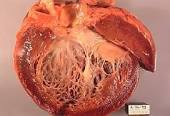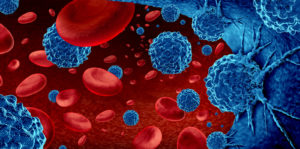
Diagnosed with Cancer? Your two greatest challenges are understanding cancer and understanding possible side effects from chemo and radiation. Knowledge is Power!
Learn about conventional, complementary, and integrative therapies.
Dealing with treatment side effects? Learn about evidence-based therapies to alleviate your symptoms.
Click the orange button to the right to learn more.
- You are here:
- Home »
- Blog »
- side effects ID and prevention »
- Heart Failure- Antioxidants, Nutrition
Heart Failure- Antioxidants, Nutrition

Cardiovascular disease, congestive heart failure, cardiomyopathy- I don’t know the difference between these types of heart failure. I just know that cardiotoxic chemotherapy damaged my heart- badly…
And I know that I manage my heart failure with evidence-based, non-conventional therapies.
I was diagnosed with a blood cancer called multiple myeloma in early 1994. I underwent induction chemotherapy and an autologous stem cell transplant in 1995. 4 of the chemotherapy regimens that I underwent, I later found out, were cardiotoxic i.e. causes heart damage.
When I flipped into chronic atrial fibrillation (Afib) in late 2010, I went to see a cardiologist. Dr. Plana diagnosed cardiomyopathy and prescribed metoprolol. No discussion of nutrition, supplementation, exercise- nothing.
Long-story short, I reacted badly to metoprolol. I have developed many long-term and late stage side effects from those original toxic therapies that I underwent to treat my incurable blood cancer. I decided not to undergo more conventional medicines to treat my chemotherapy-induced cardiomyopathy.
For years I’ve read doctors repeatedly stating that nutritional supplementation does nothing for the patient but give them expensive urine. I’ve linked three studies below to explain the heart therapy that I do pursue daily, weekly, etc.
While I still live with chronic Afib, all of my metrics are stable. I live a normal life where my heart is concerned.
I’m not saying that all heart failure patients should do what I do. I am saying however, that heart failure patients could benefit from evidenced-based non-conventional therapies such as antioxidant supplementation and nutrition.
If you have any questions or comments scroll down the page, write a post and I will reply to you ASAP.
Thanks,
David Emerson
- Cancer Survivor
- Cancer Coach
- Director PeopleBeatingCancer
I’ve been researching and writing about chemotherapy-induced cardiomyopathy since my diagnosis of this late stage side effect in December of 2010.
- AYA, Childhood Cancer Survivors’ Future Risk of Heart Disease
- Depression, Heart Failure and Multiple Myeloma
- Congestive Heart Failure- Cancer Survivor
- Heart Failure – Myeloma Symptom, Side Effect
- Congestive Heart Failure- Coenzyme Q10
- Chemotherapy-induced Heart Failure- Cardiac Rehab?
Micronutrient Supplementation to Reduce Cardiovascular Risk
“Background-Healthy dietary patterns are rich in micronutrients, but their influence on cardiovascular disease (CVD) risks has not been systematically quantified.
Objectives-The goal of this study was to provide a comprehensive and most up-to-date evidence-based map that systematically quantifies the impact of micronutrients on CVD outcomes.
Methods- This study comprised a systematic review and meta-analysis of randomized controlled intervention trials of micronutrients on CVD risk factors and clinical events.
Results- A total of 884 randomized controlled intervention trials evaluating 27 types of micronutrients among 883,627 participants (4,895,544 person-years) were identified. Supplementation with
- n-3 fatty acid,
- n-6 fatty acid,
- l-arginine,
- l-citrulline,
- folic acid,
- vitamin D,
- magnesium,
- zinc,
- α-lipoic acid,
- coenzyme Q10,
- melatonin,
- catechin,
- curcumin,
- flavanol,
- genistein,
- and quercetin
showed moderate- to high-quality evidence for reducing CVD risk factors.
Conclusions- Supplementation of some but not all micronutrients may benefit cardiometabolic health. This study highlights the importance of micronutrient diversity and the balance of benefits and risks to promote and maintain cardiovascular health in diverse populations. (Antioxidant Supplementation in the Prevention and Treatment of Cardiovascular Diseases; CRD42022315165)
Food for thought — and health. The right diet for patients can improve outcomes and reduce costs.
“Congestive heart failure is a disease notoriously difficult to treat.
Despite widespread recognition that diet is a primary driver of illness in the United States — two-thirds of Americans are overweight and obesity-related illnesses consume nearly 10 percent of U.S. gross domestic product — our health-care system hasn’t traditionally done enough to intervene…
But that’s starting to change amid mounting evidence that crafting the right diet for patients can improve outcomes and reduce costs. Consider a recent program in Massachusetts designed to support the nutritional needs of low-income patients with heart failure and other conditions for which diet plays an important role, such as diabetes, kidney disease and HIV…
A patient with diabetes might receive dishes fit for Goldilocks with just enough carbs, while one with cancer gets high-protein foods, and a patient with kidney problems gets meals low in potassium and salt.
A study last year found that patients who received such medically tailored meals experienced 50 percent fewer hospitalizations and 72 percent fewer admissions to skilled nursing facilities. Overall, the program was associated with a 16 percent reduction in health-care costs…
It was more than 2,000 years ago that Hippocrates reportedly counseled patients to “let food be thy medicine.” Since then, we’ve made profound advances in diagnosis and treatment, but have too often overlooked this fundamental component of health. But increasingly, evidence supports the notion that food is indeed medicine — and it’s time we act like it.
Being active when you have heart disease
“Exercise and Your Heart
Getting regular exercise when you have heart disease is important.
Exercise can make your heart muscle stronger. It may also help you be more active without chest pain or other symptoms.
Exercise may help lower your blood pressure and cholesterol. If you have diabetes, it can help you control your blood sugar.
Regular exercise can help you lose weight. You will also feel better.
Exercise will also help keep your bones strong.
Always talk with your health care provider before starting an exercise program. You need to make sure the exercise you would like to do is safe for you. This is particularly important if:
- You recently had a heart attack.
- You have been having chest pain or pressure, or shortness of breath.
- You have diabetes.
- You recently had a heart procedure or heart surgery.
Types of Exercise you can do
Your provider will tell you what exercise is best for you. Talk with your provider before you start a new exercise program. Also ask if it is OK before you do a harder activity.
Aerobic activity uses your heart and lungs for a long period of time. It also helps your heart use oxygen better and improves blood flow. You want to make your heart work a little harder every time, but not too hard.
Start slowly. Choose an aerobic activity such as walking, swimming, light jogging, or biking. Do this at least 3 to 4 times a week.
Always do 5 minutes of stretching or moving around to warm up your muscles and heart before exercising. Allow time to cool down after you exercise. Do the same activity but at a slower pace.


